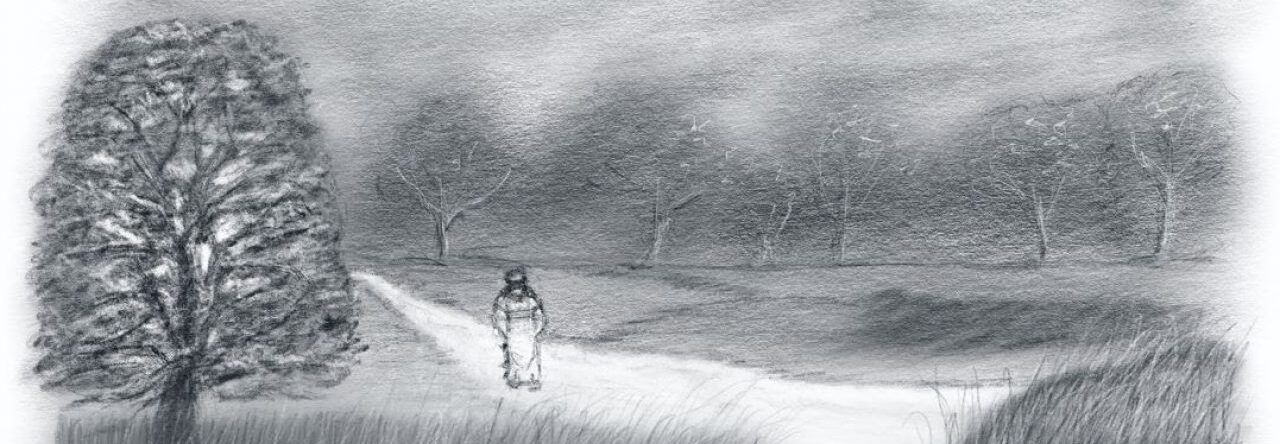Don’t Rely Solely on the Past to Define Your Self-Worth
Before considering whether or not it is useful to reflect on past life events, we must understand the difference between introspection or self-absorption and the examination of conscience.
Introspection, if not supported by professional therapy, will become an exercise in self-absorption in exploring the past. The object of such an exercise is the contemplation of one’s worth. Such an exercise is in itself is useless; because it doesn’t result in any personal improvement. The mental exercise of withdrawal or self-absorption leaves no room except for oneself. Whoever does this is left alone, withdraws from reality, and puts all hope of perfection and perhaps salvation on self-worth or esteem. The problem with this practice is that one ends up contemplating personal limitations, at the risk of falling into anguish and even guilt when seeing how far one is from reaching the self-imposed ideal of oneself.
Special care should be taken not to confuse psychological introspection with the practice of ethical self-reflection or religious examination of conscience. These practices are aimed at improving the human person. Their purpose is not the contemplation of oneself, but the discernment and evaluation of the conformity of one’s actions with the ethical and moral standards and the norms of a given society or religion.
The way these practices work can be summed up in the proverb: the tree is known by its fruits. We constantly evaluate our conduct in the face of ethical-moral or religious standards. If we discover that our conduct does not conform to those standards, then another plan of action is developed with the aim of achieving the perfection of moral conduct. Ethical-moral and religious norms, not having their origin in our subjectivity, are capable of purifying our heart (conscience) by shedding light on our true intentions. They point to higher moral dignity, and therefore, have a therapeutic action, correcting the intentions of the heart that are at the origin of our actions, while urging us to leave our moral comfort zone.
It is important to note that ethical-moral and religious norms, alien to our subjective imaginary, are not susceptible to psychological manipulation that impoverishes them by equating them with one’s own worth. On the contrary, those who are carried away by their psychological urges become the measure of their own conduct and are unable to attain virtue or character. Self-absorbed, they are at the mercy of mood swings making them prone to anguish, guilt, and self-pity, as these feelings come from self-criticism and not from ethical and religious values. Torturing ourselves by ruminating past failures and missed opportunities is nonsense. Moral and religious norms, on the contrary, plant us firmly in the present towards the future. It is in the projection towards the future that morality and religion become, for those who welcome them, in ideals of life greater than oneself.
The self-absorbed person lives in the subjectivity of imagination and memory, a meeting place with the past. In contrast, the centered and level-headed person exists in the present. In fact, our mental health is determined to some extent by our attention and performance in the present. The matter of our bodies makes us experience change or becoming, our psychology testifies to this. However, we also experience that we are different from our becoming: we exist and we are! The experience of existing in the present tells us that we are different from our past, from our memories, and from our failures; thus healing our wounds. The present makes us understand that we are not our problem. Self-absorption on its part prevents us from recognizing our existence and our being as different from the situations and circumstances that hurt us.
Those who judge their past in light of the present run the risk of reproaching and condemning not only their past actions, but their whole lives, shaming themselves and becoming morally rigid and discouraged. By “light of the present” we mean knowledge acquired through studies, work, or dealing with valuable people from whose example we learn prudence and wisdom. It also means changes in our well-being and our spiritual life, in addition to opportunities for self-improvement. In short, what now allows us better judgment and maturity than we previously lacked. Therefore, we should not judge the past based on the present, since we never experience the same situation twice in life and under the same circumstances.
The past does not change, but we can consider it in light of what we want to achieve in the future. It is not the future that can be changed. It is the present! All change takes place in the present. The past becomes a life lesson when viewed in light of a self-improvement project. Past experience seen in the light of an ideal that surpasses us in dignity will build the improved version of ourselves.
Submitted by Valdemar G. ~ an inquirer with our Chapter

